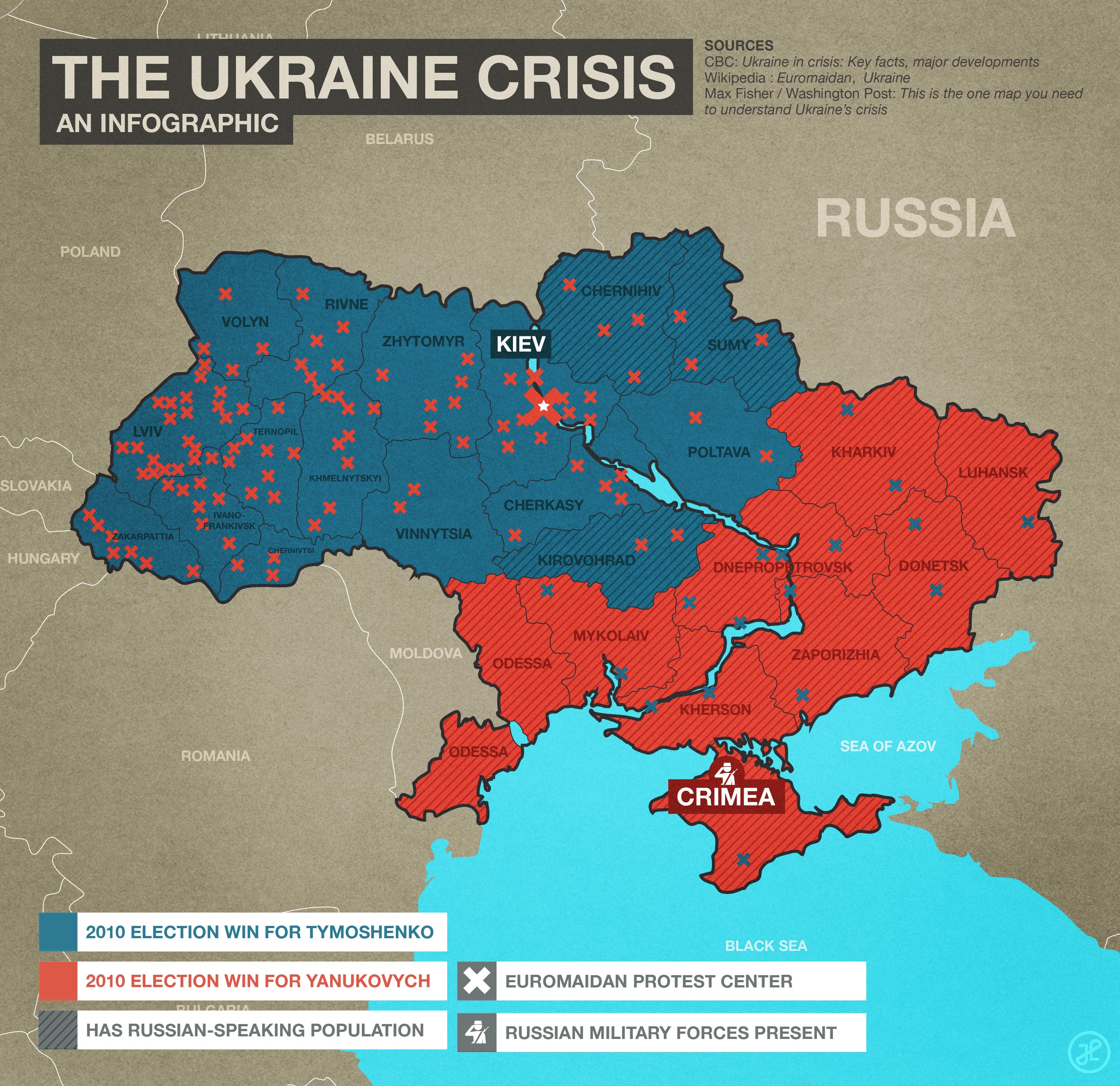Will Ukraine survive Yanukovych? Such was the name of a talk Alexander Motyl delivered last Friday on the University of Manitoba campus.
Motyl, a professor of political science at Rutgers University, spoke to the institutional devastation suffered by the Ukraine at the hands of former President Viktor Yanukovych and an oligarchic elite, and the prospect of a post-Yanukovych democratic state in Ukraine.
Motyl began by framing the recent revolt in the Ukraine within a broader cultural context.
“Yanukovych created a political system that resembled a hub and spokes with him at the centre, and almost all key political appointees directly responsible to him,” Motyl told the audience. “Such a regime is and was intrinsically brittle and unstable [ . . . ] it is incompatible with both a modern economy and society, which can be governed only with flexible and effective institutions and it is also incompatible with an increasingly globalised world – within which the free flow of information defines effective government.”
By Motyl’s own admission, the Yanukovych regime’s official dissolution in late February was inevitabile.
“A weak regime confronted a strong civil society for the period from early 2010, when Yanukovych was elected, to late 2013. When Yanukovych turned his back on the association agreement with the European Union, he pushed popular discontent over the edge,” said Motyl. “The important thing to remember is the discontent was there: it was latent, it was active [ . . . ] all it needed was a spark.”
Klavida Tatar was present for Motyl’s lecture. Tatar, a master’s student in the U of M’s department of history and a Ukrainian native, grew up in Kyiv and studied political science in Russia for five years, where she was involved with the local Ukrainian activist community.
Tatar feels a sense of optimism growing out of the local Ukrainian-Canadian community in the face of Yanukovych’s overthrow; however, present entanglements with Russia have her worried.
“Russia’s invasion of Crimea sets a precedent in modern history, one that is unacceptable for the 21st century, as it endangers Ukraine’s transformation, even its unity,” said Tatar. “I am afraid that Russia won’t be satisfied with Crimea, and the South-Eastern regions of Ukraine are under no less threat. All these regions are also predominantly Russian-speaking, with a large percentage of ethnic Russians. Even though they consider themselves Ukrainian, there is nothing to prevent Russia from doing just what it is doing in Crimea [elsewhere in Ukraine].”
Putin, Right Sector, Svoboda
In light of recent developments on the ground in Crimea—a republic in the southwest of Ukraine—Motyl opted to shift the focus of his talk toward the imminent threat presented by Russian President Vladimir Putin. Putin’s brand of fascism poses the biggest challenge to a vulnerable Ukraine.
Ukrainian far-right nationalist factions such as Svoboda and the Right Sector—groups criticized for having xenophobic or neo-Nazis values— are of less concern to Motyl. Svoboda and the Right Sector “are not fascist [organizations],” according to Motyl.
“What I can say is they [Svoboda] sound more like right-wing republican Tea Party characters. Now I wouldn’t want America to be ruled by right-wing republican Tea Party members; on the other hand, they’re not fascists,” Motyl told the Manitoban. “They are [Right Sector] opposed to the European Union, but they’re pro-democracy, and they’re actually more liberal and tolerant than Svoboda,” said Motyl.
“To me, what makes a fascists primarily is behaviour. It is partly what you say, but it’s mostly what you do. I’m not sure that what Svoboda and the Right Sector has said they’ll do is necessarily fascistic, although it’s certainly Tea Party-ish. To me the burden of proof is on the people who say they are [fascists]. Putin, absolutely – he’s created the state. He has a whole system, an apparatus. These guys, I’m not sure: they’ve got to be monitored, you have to keep an eye on them [ . . . ] I don’t want them to be in power, but then they’re not. The [Ukraine] is being run by a far larger coalition and they’re just a small part of it.”
During the question period following the lecture, Motyl entertained the notion of whether loosing Crimea to Russia ought to be considered a loss or a benefit to Ukraine in the long run. “My fear isn’t losing Crimea, frankly [. . . ] I am worried about the southeast of Ukraine. As unlikely as I think a full scale war will be, I am still very worried about it, because a five per cent chance is roughly five per cent too much.”
Earlier this week Crimeans voted overwhelmingly in favour of leaving Ukraine and joining Russia. The vote has been called illegitimate by some, as the referendum took place while Crimea was under occupation by Russian forces. The Manitoban will be providing updates on developments in the Ukraine as they unfold.


